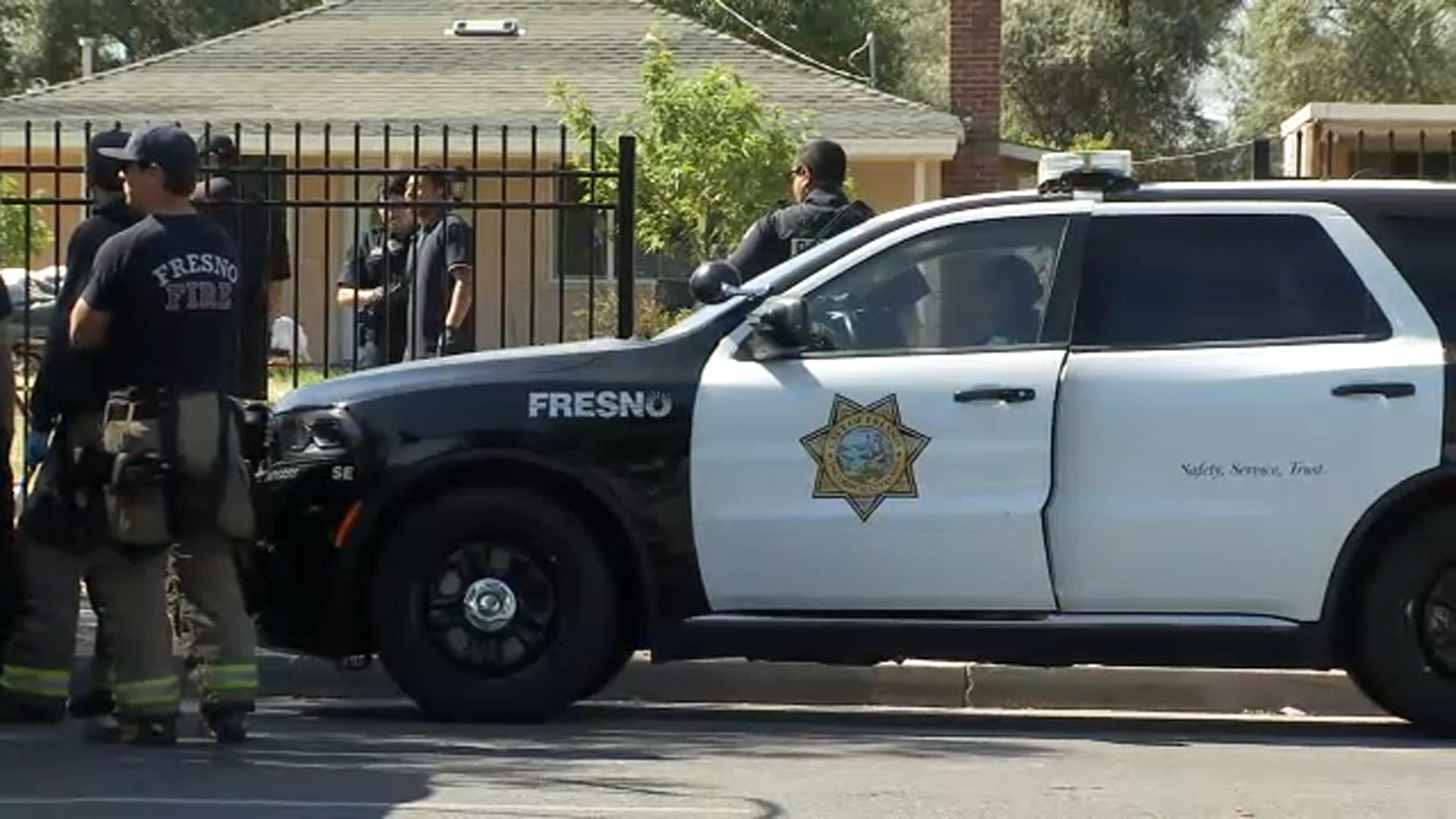California prosthetics maker devastated after eagle he was trying to help is euthanized
Bird in same family as bald eagle

DALY CITY, Calif. -- A Bay Area man is devastated to learn the prosthetic foot he was crafting for a one-legged eagle in Pennsylvania won't be put to use. The golden eagle named Aura was put down at the order of the U.S. Fish and Wildlife Service.
Nam Duong's Daly City, California workshop makes a very specialized product for animals.
"Some call me the chicken feet maker!" he said.
After tinkering with 3D printing during the pandemic, making masks and toys, it was his love of animals and wanting to help others that inspired Duong to turn his hobby into a prosthetics business. It's called Pet1stProsthetics on Etsy, to help more than just chickens.
"Ducks, and I do help a lot of dogs, turkey; I did peacock, I did goat, a finch," he said while showing off a boot made for a cat.
During the pandemic, Duong crafted hundreds of 3D-printed legs for animals in need across the country. He now also has clients across the globe, in places like Japan and Europe.
VIDEO: Wildlife engineers save owl's life with 3D printed prosthetic

Most recently, it was a request from 2,800 miles away in Stroudsburg, Pennsylvania that held special significance.
"I saw it was an eagle, and I was so anxious. I said, 'This is my first one!'" he said.
Aura the Golden Eagle, who is in the same family as the U.S. national bird, the Bald Eagle, had been found in a field in need of care. She was brought to the Pocono Wildlife Rehab and Education Center.
Katherine Huler, the organization's founder and current director of educational programming, said the bird was underweight.
"She would not have survived that much longer out in the wild, certainly not without being fed," Huler said.
It's believed one of Aura's feet got caught in a trap and was severed right below the ankle. After being seen by three doctors, her rehabbers at the nonprofit center said she was completely healed and thriving.
"Never once tried to bite, never once tried to talon. She was just incredibly soft and acceptive," said Susan Downing, co-executive director.
Videos show her calmly being bathed and interacting with humans.
Aura, who was estimated to be 3 to 5 years old, was on track to become an educational animal. Duong was hired to make a prosthetic as a finishing touch.
MORE: Why a bald eagle was spotted going through a TSA security checkpoint at a North Carolina airport
"She'd walk without so much as a limp," her rehab team said.
All seemed on track until the nonprofit center received a letter from the U.S. Fish and Wildlife Service, indicating Aura had to be euthanized because of her amputated leg.
"The order itself was received at around 1 p.m. last Thursday, and states to euthanatize immediately. That could have resulted had we refused to cooperate with the federal order," said Janine Tancredi, co-executive director of the center.
That very night, Aura was put down, much to the devastation of the rehab center, and Duong.
"I almost wanted to cry, honestly; it's not right," he said.
U.S. Fish and Wildlife explained in a statement answering how the service determines if a bird should be euthanized or not.
The law states in part that euthanizing must happen if a bird can't feed itself, or move without inflicting additional injury if it's blind or has injuries requiring amputation.
VIDEO: Flaco, the escaped Central Park Zoo owl, proving he can survive outside enclosure

Aura's rehabbers said she was completely able to perch and expected to live a healthy and full 40 years.
"She not only survived the self-inflicted amputation due to the trap, but she also overcame the infection that came with it. She had an incredible will to live and for someone else to come in and say you survived all of this and now you have to be put to death anyway because you have a missing foot and that's our law and there's no gray area," Tancredi said.
While the Service said it works closely with permittees and experts to evaluate situations on a case-by-case basis, the Pocono Wildlife Rehab Center said that wasn't the case, and felt it had no choice.
They, as well as Duong, hope this incident serves as a lesson for the future.
"A lot of animals are being put to sleep because of their disability, but we can change that," Duong said.
It is a sentiment echoed by Tancredi and the center team.
"The case should be dealt with on a one-on-one basis; not all animals read a script. There's always an exception to any rule," Tancredi said.










